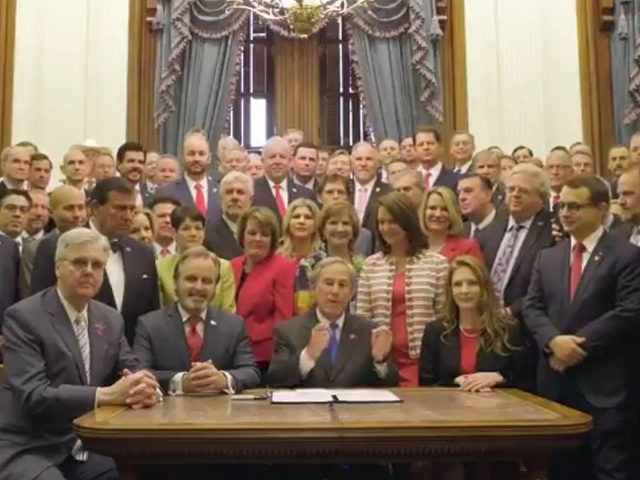Texas Gov. Greg Abbott (R) on Wednesday signed the “heartbeat” bill into law, banning abortion in the state once a fetal heartbeat can be detected.
“Pro-Lifers across Texas rejoiced as the governor signed the life-saving bill into law in the Texas Capitol in Austin,” celebrated Texas Right to Life, observing the legislation is the first of its “pro-life priority” bills to have passed both the state House and Senate this session and to have been signed into law by the governor.
The state Senate approved the bill, 18-12, following its passage in the state House, 83-64.
Other states have passed “heartbeat” bills and, once signed, abortion rights activists filed lawsuits challenging them. Subsequently, courts have blocked these laws, ruling they are unconstitutional.
However, the Texas measure contains a unique enforcement mechanism whereby any private citizen may file a civil lawsuit against an abortion provider or any other individual who “aids or abets” a “criminal abortion.”
After a letter, drafted by a coalition of Texas lawyers, expressed concern about the “exceptionally broad” language in the bill regarding the civil enforcement mechanism, the state House amended it with a provision that would limit the civil action mechanism to violations of the “heartbeat” ban.
Additionally, lawmakers also adopted an amendment that blocks individuals who impregnated a woman through rape, sexual assault, or incest from challenging an abortion through a lawsuit.
Planned Parenthood CEO Alexis McGill Johnson called the new law “cruel and extreme.”
“And they’ve included a dangerous provision that allows ANYONE from any state to sue an abortion provider and others who help someone get care??” she tweeted. “Absolutely not.”
The Center for Reproductive Rights also expressed alarm at the new law:
Abbott signed the bill into law two days after the U.S. Supreme Court agreed to reexamine if state laws that prohibit most abortions are unconstitutional, in a case that will likely present the most significant challenge to the 1973 decision in Roe v. Wade, which created a right to abortion.

COMMENTS
Please let us know if you're having issues with commenting.